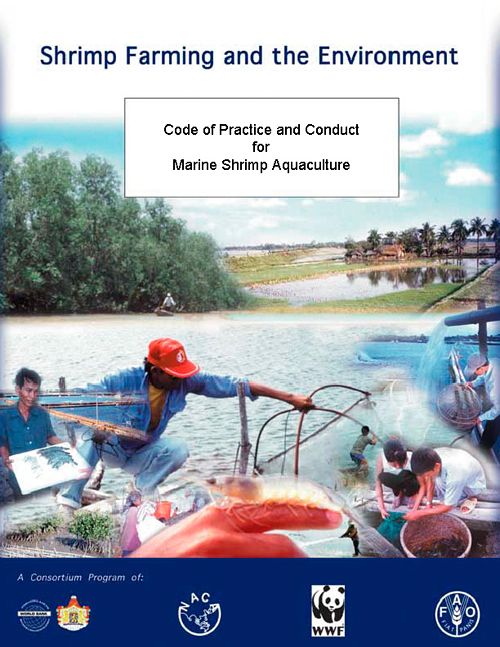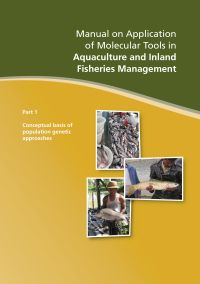Codes of practice and conduct for marine shrimp aquaculture
31 May 2005 | Claude E. Boyd, John A. Hargreaves and Jason W. Clay | 2928 Downloads | .pdf | 761.41 KB | Better management practices, Governance and Policy, Shrimp, Environment and Sustainability
The rapid expansion of marine shrimp aquaculture in many tropical developing countries has proceeded without effective environmental regulation. Most countries with shrimp farming do not have an established regulatory apparatus to monitor and enforce environmental and socioeconomic standards. Therefore, voluntary codes of conduct are a possibility for improving overall management and possibly profitability of the marine shrimp aquaculture industry until effective governmental regulation is implemented.
The purpose of codes of conduct is to provide guidelines for development of voluntary systems of management to reduce negative social and environmental impacts. Such management systems consist of impact identification, formulation of standards, adoption of management practices to comply with standards, identification of indicators, monitoring to demonstrate compliance, and correction of management systems that are not compliant with the standards.
This paper reviews the status of existing codes of conduct for shrimp farming. Most codes contain common elements regarding site selection, effluents, use of drugs and other chemicals, use of nonindigenous species and disease control, and various other operational practices. Typically, codes of conduct do not include consideration of social issues, although the participation of all stakeholders is critically important for a successful code of conduct. Managers can reduce the social and environmental impacts of the industry through implementing better management practices (BMPs) under the guidance of such codes. Suggestions are made for improving existing codes and for preparing new codes, and comments are made regarding the implementation of codes.
Copyright, all rights reserved.

